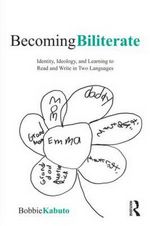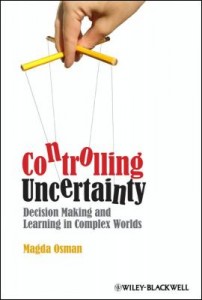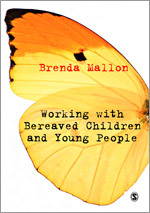New psychology books come in every week at the Central Library. Subscribe to the Psychology Department blog to be kept informed of new arrivals!
If these books are out on loan, do place a hold on them by clicking on the orange “Request” button at the top of the page- that way, you can be the next one to read them!
To see more new Psychology books, click here.
(1) Becoming biliterate : identity, ideology, and learning to read and write in two languages.
(Bobbie Kabuto)
Central Library (Level 3)
P115.2 Kab 2011
About the book:
Through the real-life context of one child learning to be bilingual and biliterate, this book raises questions and provides a context for pre-service and practicing teachers to understand and reflect on how children learn to read and write in multiple languages.
Highlighting the social and cognitive advantages of biliteracy, its purpose is to help teachers better understand the complexity by which young children become biliterate as they actively construct meaning and work through tensions resulting from their everyday life circumstances. Perspectives regarding identity and language ideologies are presented to help teachers refine their own pedagogical approaches to teaching linguistically diverse children.
Readers are engaged in understanding early biliteracy through a process of articulating and questioning their own assumptions and beliefs about learning in multiple languages and literacies. (Taylor & Francis)
(2) Controlling uncertainty : decision making and learning in complex worlds
(Magda Osman)
Central Library (Level 3)
BF463 Unc.Os 2010
About the book:
Controlling Uncertainty: Decision Making and Learning in Complex Worlds reviews and discusses the most current research relating to the ways we can control the uncertain world around us.
It features reviews and discussions of the most current research in a number of fields relevant to controlling uncertainty, such as psychology, neuroscience, computer science and engineering and presents a new framework that is designed to integrate a variety of disparate fields of research.
This represents the first book of its kind to provide a general overview of work related to understanding control. (Wiley-Blackwell)
(edited by George W. Burns)
Central Library (Level 3)
BF575 Hap.Ha 2010
About the book:
Edited by internationally recognized psychologist, author, and therapist trainer George Burns, Happiness, Healing, Enhancement: Your Casebook Collection for Applying Positive Psychology in Therapy provides thought-provoking yet realistic and practical contributions from practitioners of positive psychology from around the world who share how they have translated solid, positive psychology research into sound clinical practice.
Organized to make searching for a particular diagnostic category or therapeutic outcome fast and easy, this guide features:
- Contributions from some of the world’s foremost positive psychology clinicians, researchers, and teachers, including P. Alex Linley, Betty Alice Erickson, Robert Weis, Antonella Delle Fave, Richard G. Tedeschi, Robert Biswas-Diener, Michael D. Yapko, and Bill O’Hanlon
- Examples and strategies including a “Putting It into Practice” feature that illustrates how readers can immediately apply the therapeutic applications covered in each chapter
Building on the proven benefits of the positive psychology movement, Happiness, Healing, Enhancement will teach you new skills that will strengthen your practice of therapy and equip your clients with the pathways to overcome challenging problems and live a full, satisfying life.
(4) Skilled interpersonal communication : research, theory and practice
(Owen Hargie)
Central Library (Level 3)
BF637 Com.Ha 2011
About the book:
Previous editions (‘Social Skills in Interpersonal Communication’) have established this work as the standard textbook on communication. Directly relevant to a multiplicity of research areas and professions, this thoroughly revised and updated edition has been expanded to include the latest research as well as a new chapter on negotiating.
Key examples and summaries have been augmented to help contextualise the theory of skilled interpersonal communication in terms of its practical applications. Combining both clarity and a deep understanding of the subject matter, the authors have succeeded in creating a new edition which will be essential to anyone studying or working in the field of interpersonal communication. (Taylor & Francis)
(5) Working with bereaved children and young people
(Brenda Mallon)
Central Library (Level 3)
BF723 Gri.Ma 2011
About the book:
Working with Bereaved Children and Young People offers a fresh insight into working practices with children and young people who are experiencing the death of a family member, friend, school peer or in their social network. Bridging the gap between theory and practice, the book’s practical skills focus is informed by the latest research findings on children and young people’s experience of grief. The wide-ranging content includes:
- a comprehensive review of theoretical approaches to bereavement
- the impact of different types of grief on children
- working with children who have been bereaved in traumatic circumstances, such as through criminal behavior
- skills development
The list of resources, case studies and exercises encourage critical engagement with the counselling theory and promote reflexive practice. Trainees in counselling, psychotherapy and social work, as well as teachers and mental health workers, will find this an invaluable resource for working with this vulnerable client group. (Sage)






